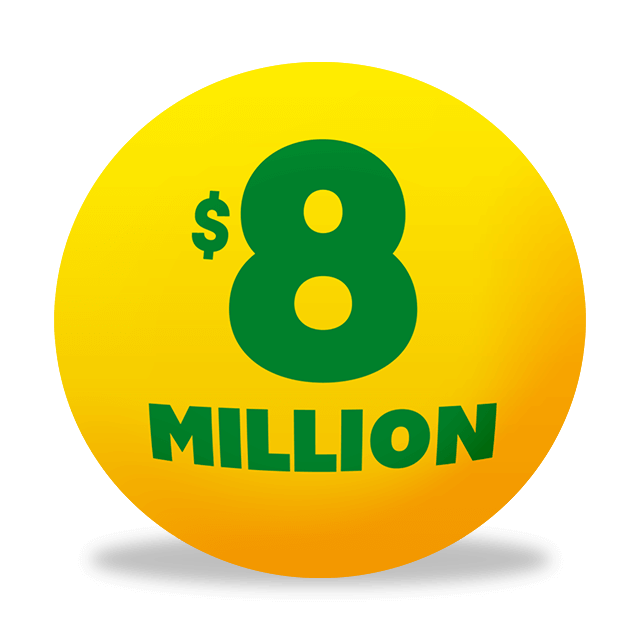How to Play Lotto Online Safely?

The idea of winning the lottery is tempting, right? Imagine life with a big payout—buying that dream home or ticking off destinations on your bucket list. But before you start planning how you’ll spend your winnings, it’s important to talk about something a bit less glamorous: how to avoid online lottery scams.
It’s easy to get caught up in the excitement, but let’s be clear: the last thing you want is to end up the victim of a scam. Here's how to make sure you're playing with a trusted site, and how to make sure you're not falling for any tricks.
1. Check the Website’s Professionalism and Contact Information
A trustworthy lottery site will have a polished, professional look. If the website feels outdated, has spelling errors, or looks like it’s copying another brand, it’s a good idea to look elsewhere. A legitimate site will have smooth design and proper attention to detail. Another thing trustworthy websites will have are business phone numbers, addresses, emails and customer support that you can contact. If contact information is only available via a website form or the phone/email address doesn’t look right, it’s best not to purchase a ticket through that website.
Hot tip: Avoid any websites that have emails ending in a generic platform like @gmail.com, @hotmail.com
Trustworthy websites will usually use email addresses that have the business name following afterwards. For example, @ozlotteries.com will be shown at the end of an email from us at Oz Lotteries. But always make sure the business name is spelt correctly - small spelling changes to common business names is a way scammers make themselves look legitimate on first glance.
2. Do your research
Before entering any personal details, do a quick search for the website’s name followed by “reviews” or “scam.” If other users are warning you about suspicious activity, it’s best to take their advice.
3. Watch Out for "Guaranteed Wins"
The lottery is all about chance. Some popular scams are known to claim they have the winning numbers or can guarantee a win. Any website using this language is purposely misleading and should be avoided. There’s no magic formula for winning the lottery. Any site that sells strategies or tools to improve your odds is likely a scam. Lotteries are games of pure chance, and no system can change the randomness of the draw.
4. Know How Australian Lotteries Work
If a site claims to offer an “Australian National Lottery ticket”, that’s a red flag. In Australia, lotteries like Oz Lotto and Powerball are run by state-licensed operators in all states except Western Australia, not the government. The WA government however does run its own lotteries under the entity LotteryWest.
5. Look for Clear Security Features
Legitimate sites will show you they’re serious about security. Check for:
A padlock symbol next to the website URL.
An address starting with “HTTPS://”
6. Check Their Social Media Presence
Reputable businesses engage with their customers on social media. If a site has no social media presence or poor engagement, it might be trying to hide from complaints. Trustworthy businesses will have recent posts and an engaged audience.
It is also important to be aware of potential phishing and fake accounts created with the intention to scam people. This can happen on social media as well as email. There are key telltale signs that will help determine what accounts are real and which ones are most likely phishing.
Social media signs:
- Low following with no posts or no social interaction from real customers.
- Fake messages sent to your DM folder claiming you have won a prize or a lottery and to click a link to claim.
- No verification tick next to the profile. Not all businesses have this (we don’t yet) but it is a helpful signal to look for.
- Screenshots of content shared on real accounts reposted to seem like their own content.
Email Signs
Phishing emails typically aren’t sent from official business names. An example of this would be if the email address ends in something like @gmail.com, @yahoo.com or @bigpond.com. Real email addresses will always be associated with the business name that follows the @ symbol. For example, @ozlotteries.com will appear at the end of the email address from an official email from Oz Lotteries
Incorrect spelling of business names and incorrect spelling and grammar in the email itself.
Asking you to click links or attachments in the email to “claim a prize”.
7. Be Careful with Overseas Sellers
Be cautious when buying tickets from overseas sites. There are no official international resellers for Australian lotteries, and these sites often don't have the legal obligation to pay out any winnings. We recommend only sticking to authorised Australian websites as a rule of thumb.
8. Be Wary of Free Trials and Auto-Subscriptions
Some sites offer "free trials" for lottery subscriptions, but often these come with hidden fees or tricky cancellation mazes. Make sure to read the terms and conditions carefully before signing up.
At Oz Lotteries, we do things differently. Our subscription options—Multiple Draws and Autoplay—are built for your convenience, with total transparency and control in your hands.
Multiple Draws
Want to play your favourite numbers across several upcoming jackpots? No problem. With Multiple Draws, you can easily choose how many future draws you'd like to enter—whether it's the next 2, 5, or 10 weeks. Just set and forget!
Auto play
Set up Autoplay to automatically enter your favourite ticket type and numbers every week—no stress, no hassle. You can cancel or change your settings at any time with just a few clicks. Plus, it’s completely customisable—you can even choose to only play when jackpots hit a certain amount (say, over $50 million).
With Oz Lotteries, there are no surprises—just simple, flexible options to make playing easier and more exciting.
9. Trusted Payment Methods and Claiming your Win
Stick with well-known, secure payment methods like a credit card PayPal. If a site asks for payments via Western Union or direct bank transfers, it’s best to walk away. Some scams may list that they take commission on winnings. Real lottery agents don’t take a cut of your winnings. If a site claims to hold a percentage of your prize, they’re not operating above board.
Australian lottery operators will also never charge a fee to claim your winnings. If a site asks for extra charges to process your prize, this is a signal that it could be a scam. Don’t fall for it. If you win a division one or two prize you will likely hear from the organisation you purchased your ticket from in order to congratulate you and give you exact steps of how to verify your identity and claim your prize.
10. Lottery Pay Outs and Proof of Purchase
In Australia, lottery winnings are paid out in one lump sum, tax-free. If a site offers to pay your prize in instalments, it’s probably keeping your money for itself. When you buy a ticket from a legitimate site, you’ll receive confirmation via email or through logging into your account on their site or app. If a site doesn’t provide proof of purchase, you may have just paid for something that doesn’t exist.
11. Be Careful with QR Codes
QR codes are convenient, but they can also be used to trick you into visiting fake sites. Avoid scanning codes from unknown sources, and always double-check the URL sounds legitimate before entering any personal details.
Final Tip: Trust Your Instincts
Scams can be tricky, but if something feels off, it’s always worth doing a bit more research. The internet is full of cautionary tales and red flags—if something sounds too good to be true, it probably is.
If you’re ever unsure or need a second opinion, our friendly Customer Support team is here to help. We’d much rather you ask than risk getting caught out.
Now that you’re armed with the knowledge to spot a scam, play smart and enjoy the thrill of the lottery responsibly!

